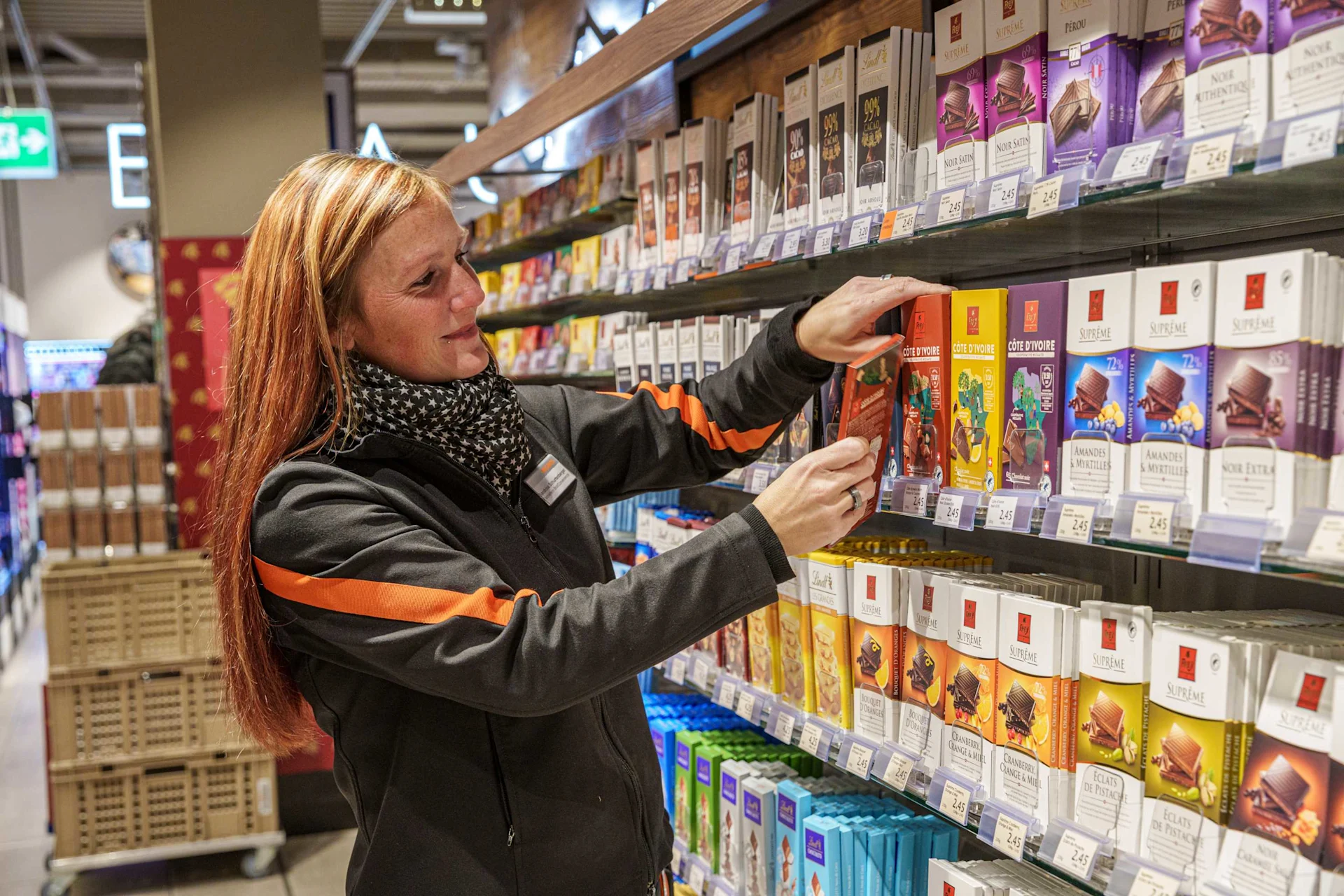
Sustainability
More clarity in the label jungle
Migros has many chocolates with different labels. But what do “Fairtrade”, “Bio” and “Rainforest Alliance” mean?
navigation
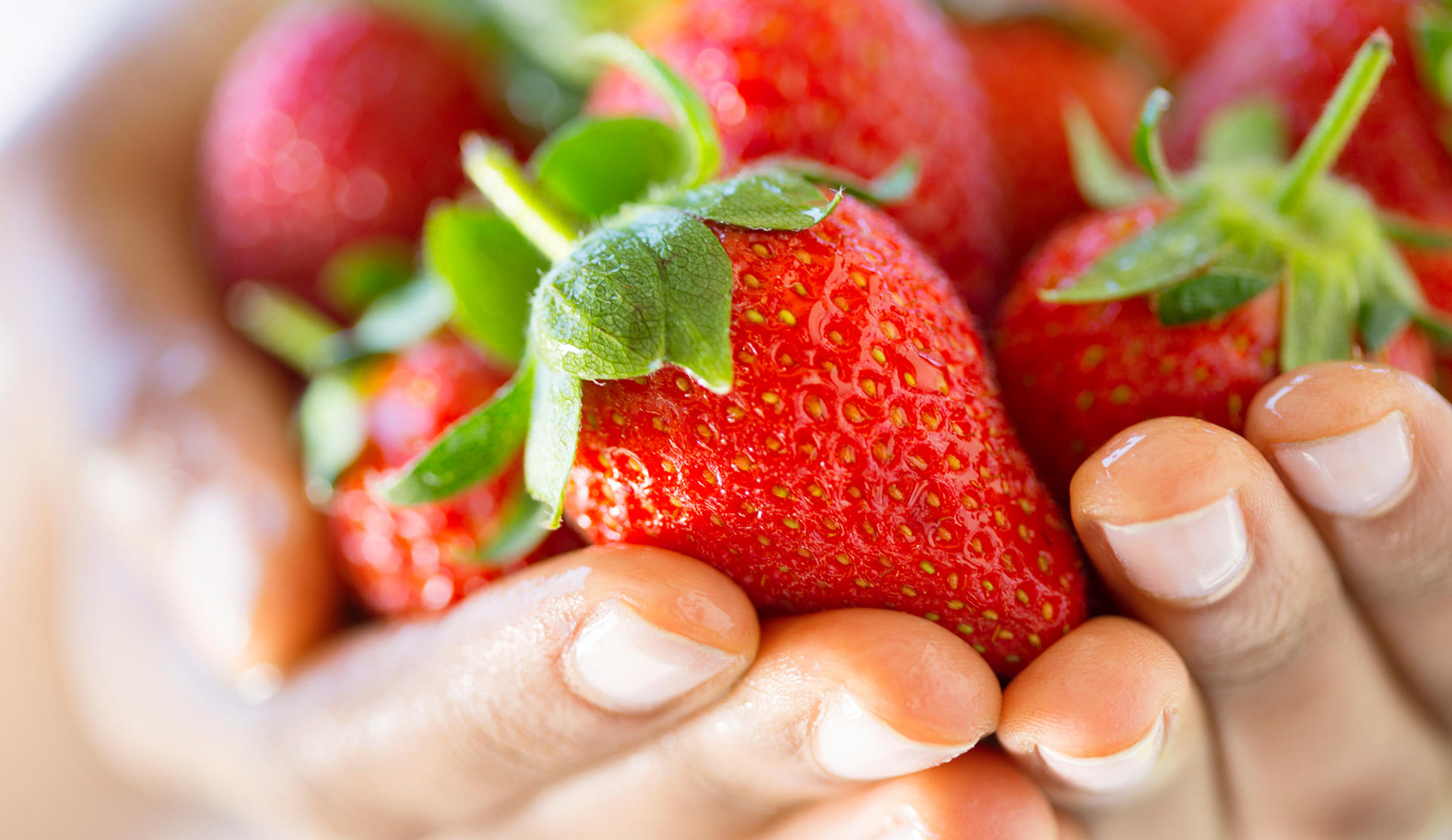
More Bio Suisse in the product range
At Migros, organic will soon be even more organic. And the conventional range is also becoming more and more eco-friendly. “Mister Bio Bud” Jörg Schumacher on the introduction of the Bio Suisse standard, strawberries from Spain and pest control with pheromones.
Jörg Schumacher:The Bio Bud is one of the highest organic standards worldwide. We have been sourcing organic raw materials in Switzerland from Bio Suisse farms for a long time. With the Bio Bud, we are committed to protecting natural resources, preserving biodiversity and treating animals respectfully on farms.

Processed organic products and organic products from abroad are now also produced according to the Bio Suisse standards. By the end of 2025, most of the Migros Organic own-brand products will be converted.
They will find their Migros Organic products on the shelves as usual. However, these are now certified according to Bio Suisse and bear the Bio Bud as an organic label. Our aim is to make food accessible to everybody with the Migros Organic, Demeter and Alnatura brands. And all this at the best price-performance ratio.
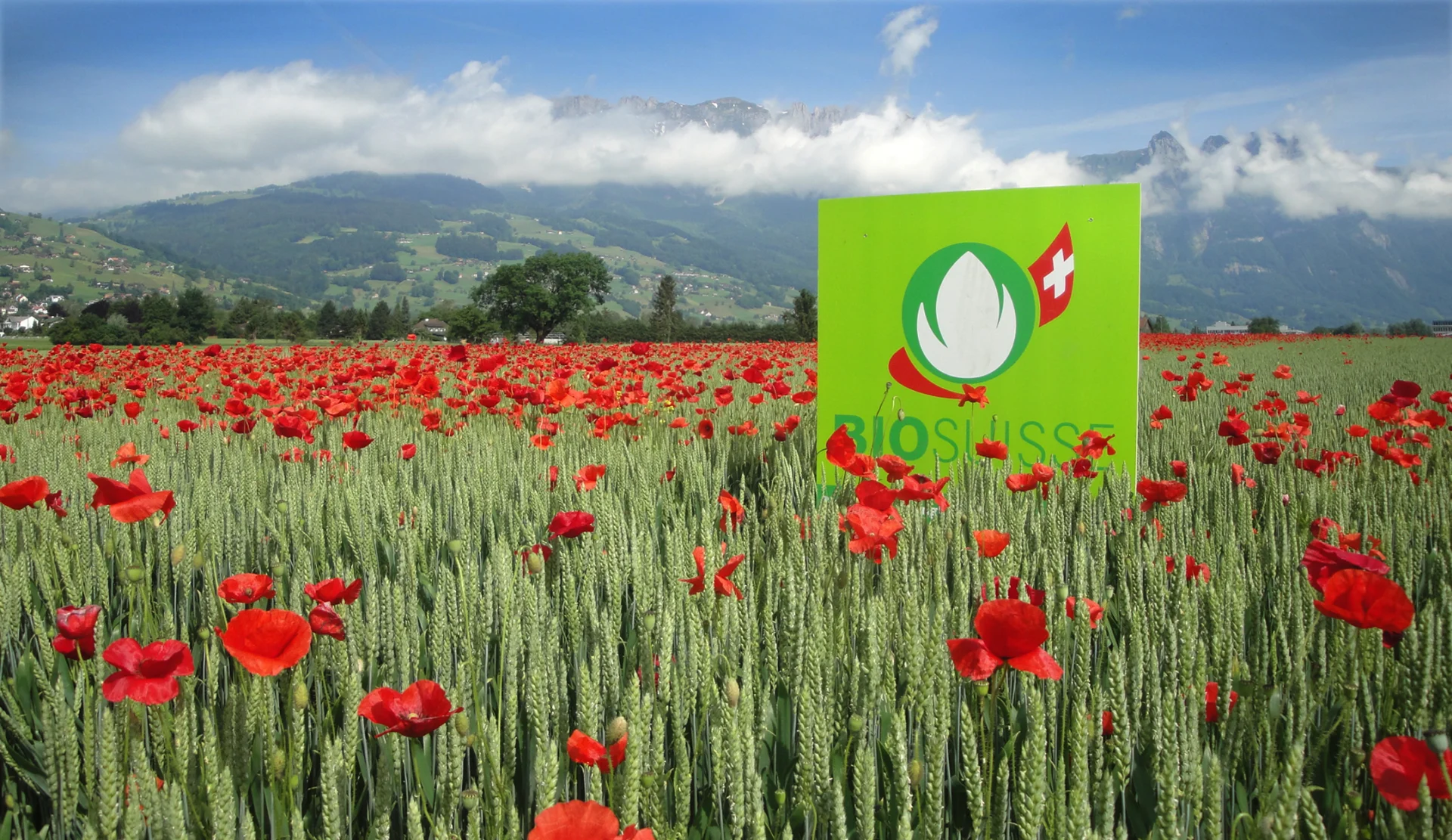
(laughs) It’s something you grow into. Because organic at Migros is already much more than the Bio Bud. I myself am an agronomist and worked for Bio Suisse for nine years before moving to Migros. Here I oversee sustainability projects in the fruit and vegetable product range and manage the Bio Bud conversion. So I’ve been involved with organic products for almost my whole professional life.
I visited some of our strawberry producers, conventional and organic. The introduction of the Bio Bud is only one part of my work. The other is to make conventional fruit and vegetable production more ecological. Because customers want more sustainability there, too. That’s why we have developed a sustainability programme for all our strawberry producers in Spain.
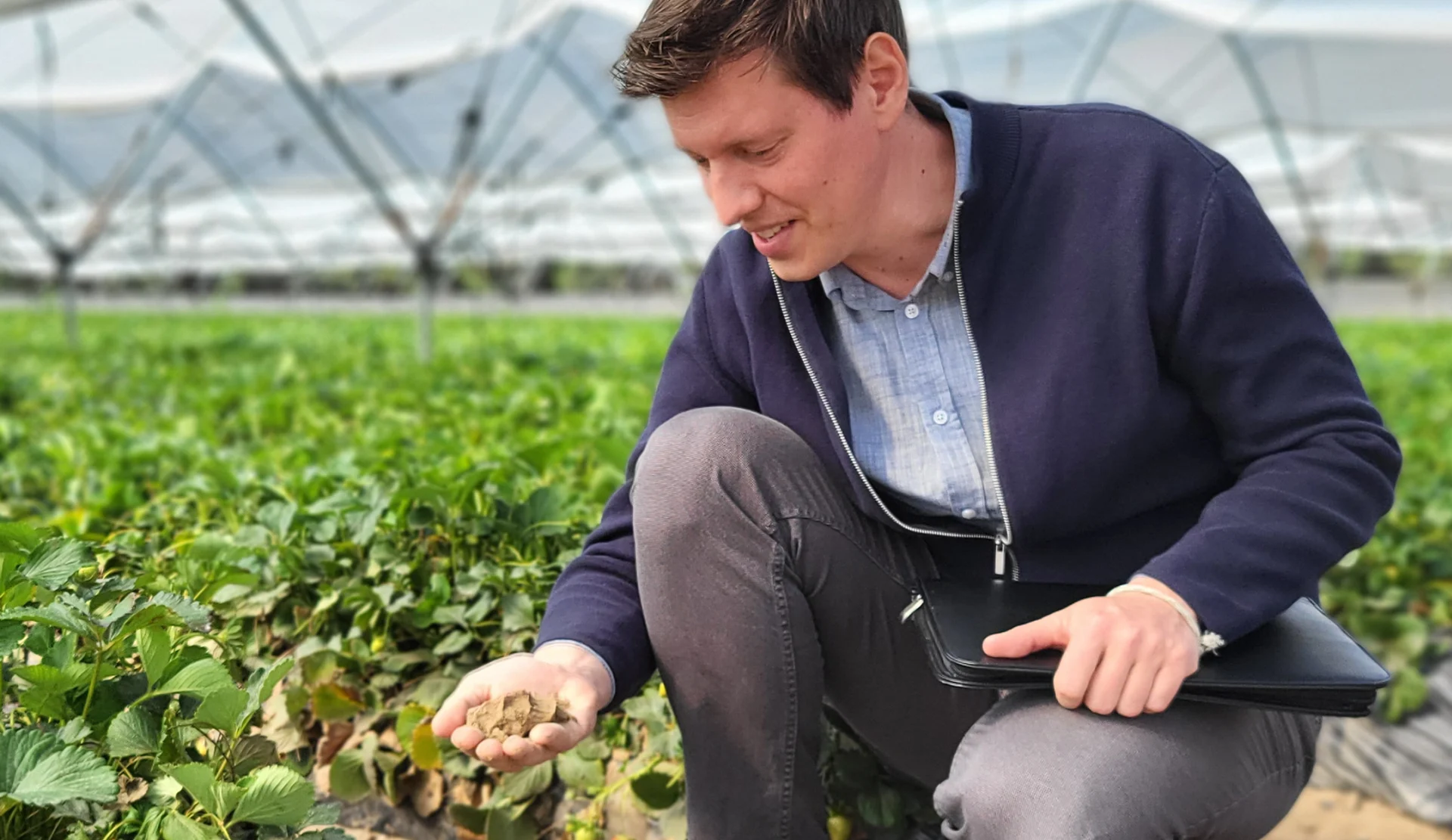
Primarily, it is about water management and compliance with social standards. However, it also includes measures to promote biodiversity and reduce the use of plant protection agents. Our organic farms in Spain also participate in the programme, although the majority of them already meet the requirements. They have long since stopped using synthetic chemical plant protection agents and have already successfully taken measures for more biodiversity.
They leave a strip around their fields where plants can flower. This helps beneficial insects such as bees and butterflies. Or they set up bug hotels where beneficial insects can settle. Hedges and bushes are also part of these measures.
Yes. For example, I was allowed to lead a programme that Migros launched for the apple and pear sector. As a result, 85 per cent of conventionally producing Swiss apple and pear farms now pursue more biodiversity measures, promote more beneficial insects and use fewer crop sprays. They also reduce the use of herbicides. This has a big impact because it happens on a large area. The programme is now established as a Switzerland-wide solution.
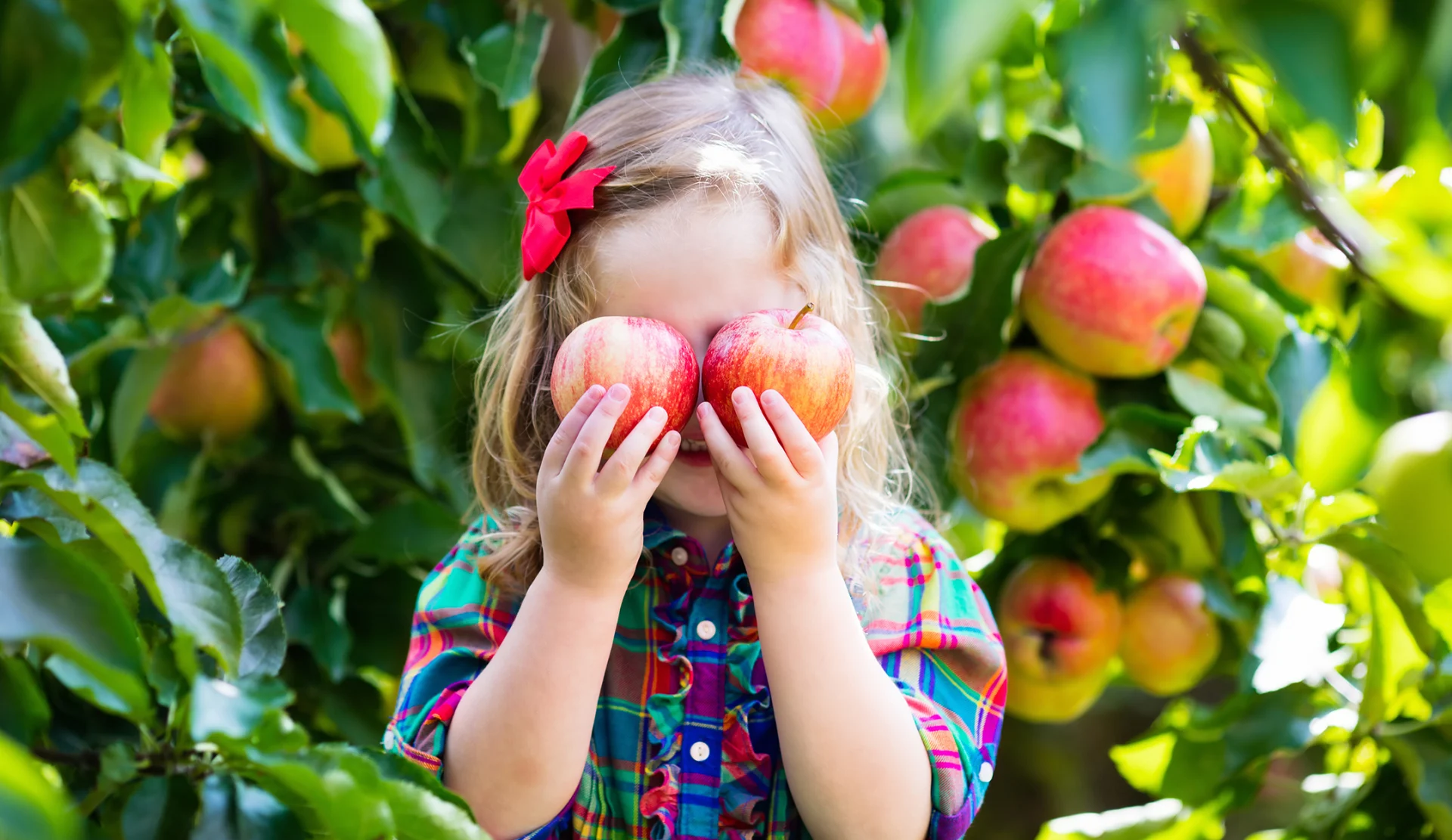
Organic farming is, among other things, about promoting soil fertility in a natural way. In other words, with organic fertiliser such as cow dung. This retains nutrients in the cycle. In addition, instead of chemical agents, beneficial insects or biological plant protection agents are used to protect the plants. So you’re working with nature.
A good example is the method used against codling moth. It likes to lay its eggs on the leaves and fruits, which results in worms in the apples. Instead of killing it with chemicals, you can get rid of it by confusing it. This is done by distributing pheromones in small dispensers throughout the apple orchard. As a result, males and females can no longer find each other and cannot reproduce.
Personally, I don’t think so. But conventional products will also become increasingly organic, as in the case of strawberries and apples.
Discover exciting stories about all aspects of Migros, our commitment and the people behind it. We also provide practical advice for everyday life.